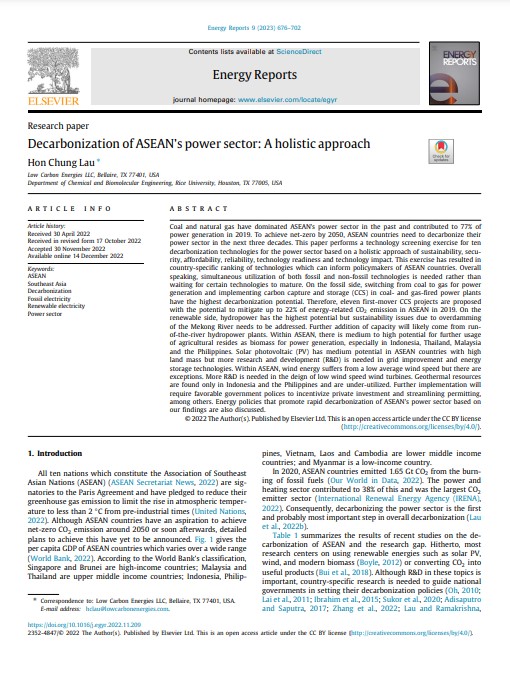
Keyword(s)
Author(s)
a) Olakunle Oloruntobi, g) Lai Fatt Chuah, a) Kasypi Mokhtar, b) Adel Gohari, c) Ahmed Rady, d) Rasha E. Abo-Eleneen, e) Muhammad Saeed Akhtar, f) Muhammad Mubashir
Country(ies)
Publisher
Published Date
Access
DOI
This study analyzes the impact of ASEAN’s goal of achieving carbon neutrality by 2050 on climate change and coastal ecosystems by examining carbon emissions and energy usage from 2019 to 2050 using different scenarios to reduce emissions and meet global temperature goals. This research proposes strategies to reduce carbon emissions and mitigate climate change effects on coastal ecosystems, focusing on evaluating CO2 emissions from ASEAN’s coastal shipping sector. Geospatial data was used to analyze ship activity and develop carbon neutrality strategies. Various sources are used to gather data, including the Maritime Portal, exact Earth AIS, FASA and GFW. This study finds that container ships emitted 13.7 × 106 t of CO2 in 2019, with the transportation sector contributing 3.8% of the total greenhouse gas in 2020. Without regulations, CO2 emissions could increase fourfold by 2050. The study recommends implementing policies such as adopting clean fuels, energy efficiency standards and fuel-related regulations to reduce CO2 emissions by 65–80% by 2050. It also emphasizes the importance of cleaner technologies, regulatory considerations and collaboration, which would have positive implications for coastal ecosystems. This study is beneficial to professionals in the maritime and shipping industries, policy makers, environmental consultants, sustainability specialists, and international organizations.